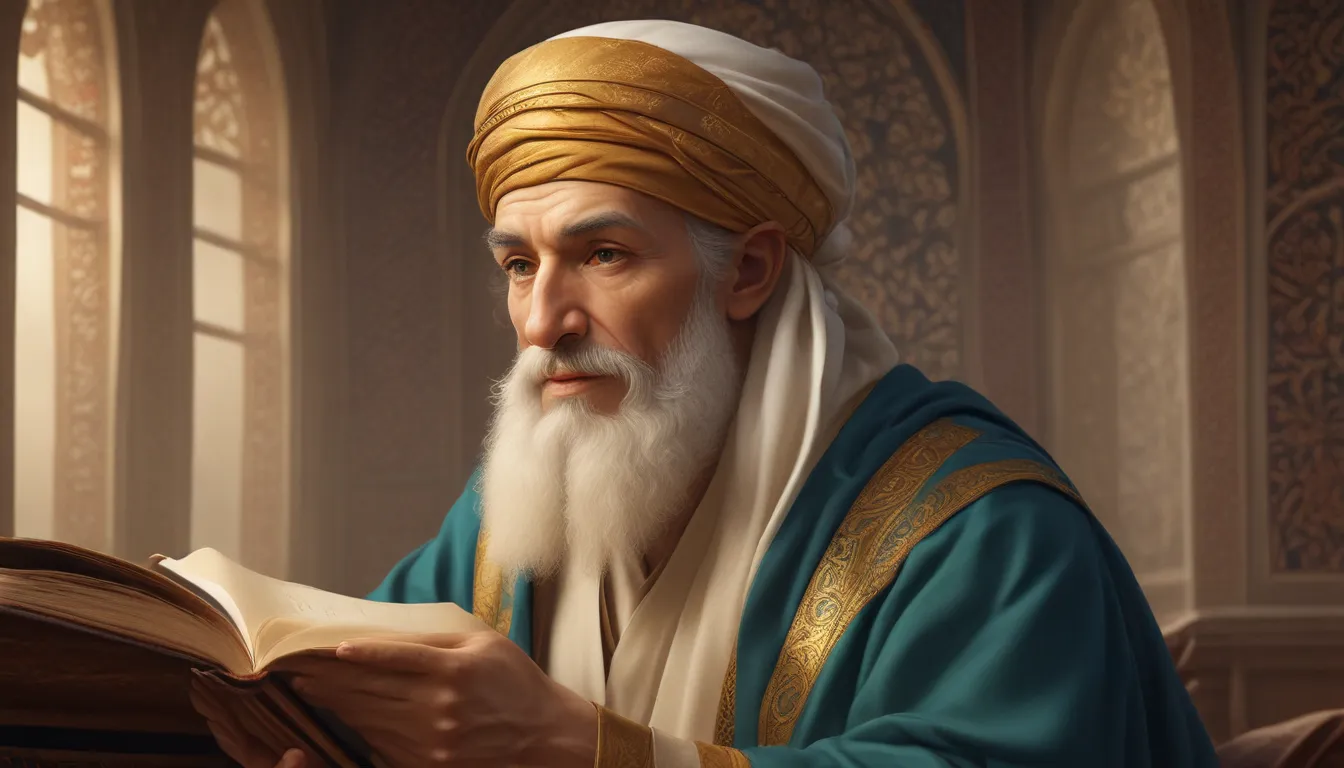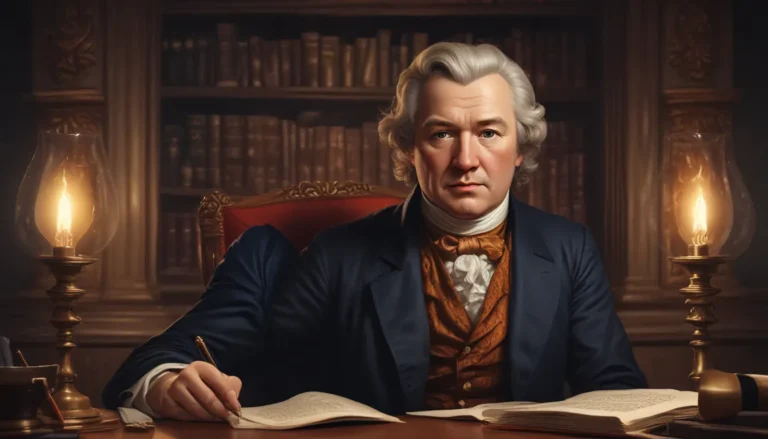The images in our articles may not match the content exactly. They are used to grab your attention, not to show the exact details in the text. The images complement the text but do not replace it.
Welcome to the captivating world of Avicenna, also known as IBN Sina, a brilliant Persian polymath whose contributions to medicine, philosophy, astronomy, and more have left an indelible mark on human intellectual history. Born in 980 AD in present-day Uzbekistan, Avicenna’s insatiable thirst for knowledge propelled him to become one of the most influential scholars of the Islamic Golden Age.
Unraveling the Enigma of Avicenna
Avicenna, a renowned Persian thinker, philosopher, physician, and scientist, was a true polymath, showcasing his exceptional intellect across various fields. His legacy is marked by over 450 works on a wide range of subjects, each displaying unparalleled insight and expertise. Particularly groundbreaking was his masterpiece, “The Canon of Medicine,” which became a standard medical textbook in Europe for centuries.
The Magnum Opus: “The Canon of Medicine”
Avicenna’s crowning achievement, “The Canon of Medicine,” stands as a comprehensive medical encyclopedia that revolutionized the field. This magnum opus not only served as a standard reference for centuries but also influenced the practice of medicine to this day, making Avicenna a pioneer in the domain of healing arts.
The Rise of “Unani Medicine”
Avicenna’s medical teachings gave rise to the practice of “Unani medicine,” which emphasizes the balance of bodily humors and the use of natural remedies. This traditional system of medicine, still prevalent in certain regions, reflects Avicenna’s enduring influence in the realm of healthcare.
Philosophical Luminary
Delving into the realm of philosophy, Avicenna’s ideas captivated both Islamic and Western philosophical traditions. His works on metaphysics, ethics, and logic continue to inspire and intrigue scholars worldwide, showcasing the depth of his intellectual prowess.
Star Gazing and Number Crunching: Avicenna’s Scientific Acumen
Beyond medicine and philosophy, Avicenna displayed a remarkable aptitude for astronomy and mathematics. His observations and calculations advanced our understanding of celestial bodies and numerical systems, cementing his legacy as a versatile scholar with a keen scientific mind.
A Multifaceted Scholar: “The Book of Healing”
Avicenna’s masterpiece, “The Book of Healing,” encapsulates his diverse interests, spanning physics, psychology, geology, and astronomy. This extensive work remains a cornerstone in the history of scientific literature, showcasing the breadth of Avicenna’s intellectual pursuits.
Bridging Cultural Divides: Avicenna’s Impact on Western Thought
Avicenna’s works, translated into Latin during the Middle Ages, profoundly influenced Western philosophical and medical traditions. By bridging the gap between the Islamic and Christian worlds, Avicenna’s ideas sparked intellectual dialogues that transcended cultural boundaries.
Visionary Insights: Avicenna’s Theories on Optics and Psychology
Avicenna’s studies on optics challenged existing beliefs, laying the groundwork for future advancements in the field. Similarly, his groundbreaking contributions to psychology, including theories on the mind-body connection and the concept of the “self,” reshaped the landscape of psychological inquiry.
Harmonizing Harmonies: Avicenna’s Treatises on Music
Avicenna’s treatises on music delved into the mathematical and theoretical aspects of sound, shaping the foundations of music theory still studied today. His analytical approach to the art of sound reflects a nuanced understanding of the intersection between science and art.
The Enduring Legacy of a Prolific Author
With a repertoire of over 450 works spanning medicine, philosophy, astronomy, and poetry, Avicenna’s dedication to scholarship is unmatched. His prolific output stands as a testament to his intellectual vigor and enduring impact on the intellectual landscape of his time.
Conclusion: A Beacon of Knowledge and Insight
In conclusion, Avicenna’s legacy as a polymath and profound thinker continues to inspire generations of scholars worldwide. His groundbreaking contributions to medicine, philosophy, and the sciences have left an indelible mark on human intellectual history, shaping the way we perceive and engage with these disciplines.
FAQs: Unveiling Avicenna’s World
Q: What were Avicenna’s major contributions to medicine?
A: Avicenna’s major contribution to medicine was his influential work, “The Canon of Medicine,” a comprehensive medical encyclopedia that served as a standard reference for centuries.
Q: How did Avicenna challenge traditional philosophical ideas?
A: Avicenna challenged traditional philosophical ideas through his concept of the “Flying Man,” a thought experiment that sought to explore the nature of the soul and selfhood.
Q: What other areas did Avicenna contribute to besides medicine and philosophy?
A: Besides medicine and philosophy, Avicenna made significant contributions to astronomy, physics, and mathematics, shaping the foundations of scientific inquiry.
Q: Why is Avicenna considered a polymath?
A: Avicenna’s wide-ranging knowledge and expertise across multiple disciplines showcase his versatility as a polymath, leaving an indelible mark in various fields.
Q: How has Avicenna’s legacy influenced the modern world?
A: Avicenna’s legacy continues to influence modern healthcare practices, philosophical inquiries, and scientific endeavors, underscoring his enduring impact on human knowledge and achievement.
Reflecting on Avicenna’s Legacy
Each fact about Avicenna unravels a tapestry of intellectual prowess and groundbreaking insights that continue to shape our understanding of the world. As we navigate the vast landscape of Avicenna’s contributions, we are reminded of his timeless relevance and enduring legacy as a beacon of knowledge and insight. Join us in celebrating the remarkable life and achievements of Avicenna, a polymath whose brilliance continues to inspire and captivate scholars across the globe.






